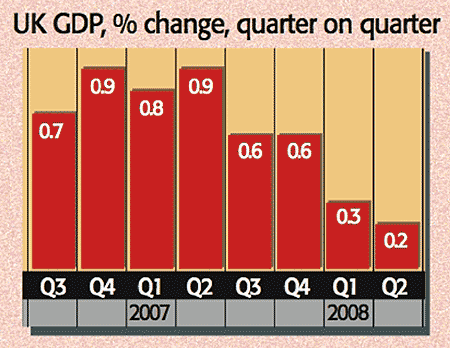
Talk about an unhappy coincidence, said Larry Elliott in The Guardian. Just after we heard that mortgage approvals for new house purchases had fallen to another record low of 36,000 in June, down 68% from a year earlier, Sir James Crosby’s Treasury-commissioned interim report on the stricken mortgage market was released. It concluded that the shortage of mortgage finance is likely to persist until 2010, and there is no silver bullet to revive the market.
Why lending has tanked
The key problem is the now frozen securitisation market, where mortgages were previously parcelled up and sold on, funding more loans. The fact that much securitised debt “has been shown to be so much financial sewage”, as The Guardian put it, has closed this global market down. There are around £257bn of mortgage-backed securities outstanding, about a fifth of outstanding residential mortgage debt. In 2006 almost two-thirds of new British mortgage lending was financed by securitisation.
What’s more, £40bn (the value of a third of last year’s mortgage lending) of mortgage-backed securities will mature and require refinancing over the next three years, noted Capital Economics. So banks need to find additional cash to replace part of their current funding – as well as secure fresh funds to compensate for what they would have raised via securitisation.
What next?
One suggested solution is to extend the Bank of England’s Special Liquidity Scheme, whereby banks can swap mortgages issued before 2007 for gilts, to new loans, although the Bank is loath to do this and the harsh terms “would not attract many banks as a profitable way” to fund mortgages, said Sean O’ Grady in The Independent.
And a Government guarantee on new securities would just leave taxpayers worse off if homeowners defaulted, said The Guardian. It’s “up to the market” to find a “new model” of mortgage finance, said the FT. Ultimately, Government action would simply “delay the pain” of the necessary adjustment in the overvalued housing market.
In any case, while supply of mortgages is tight, demand is set to fall further now that consumers are becoming convinced that prices have further to fall, as Lex said in the FT. Tumbling house prices bode ill for consumption, which is already in trouble. The latest CBI survey of high-street sales, covering the first half of July, was the weakest in 25 years. Meanwhile, industry is contracting and overall growth slid to just 0.2% in the second quarter, said Capital Economics. And all this is before “the full impact of the credit squeeze and the housing market downturn has been felt”. Get set for “outright recession”.